 What is Postman? And how to get started
What is Postman? And how to get started
- 2 mins 
Introduction
Postman is a popular API client that makes it easy for developers to not only share APIs, but create, test, and document APIs as well. This is done by allowing users to create and save both simple and complex HTTP requests, as well as read the responses. This results in more efficient and less tedious work for developers.
Getting Started
To start, first download Postman.
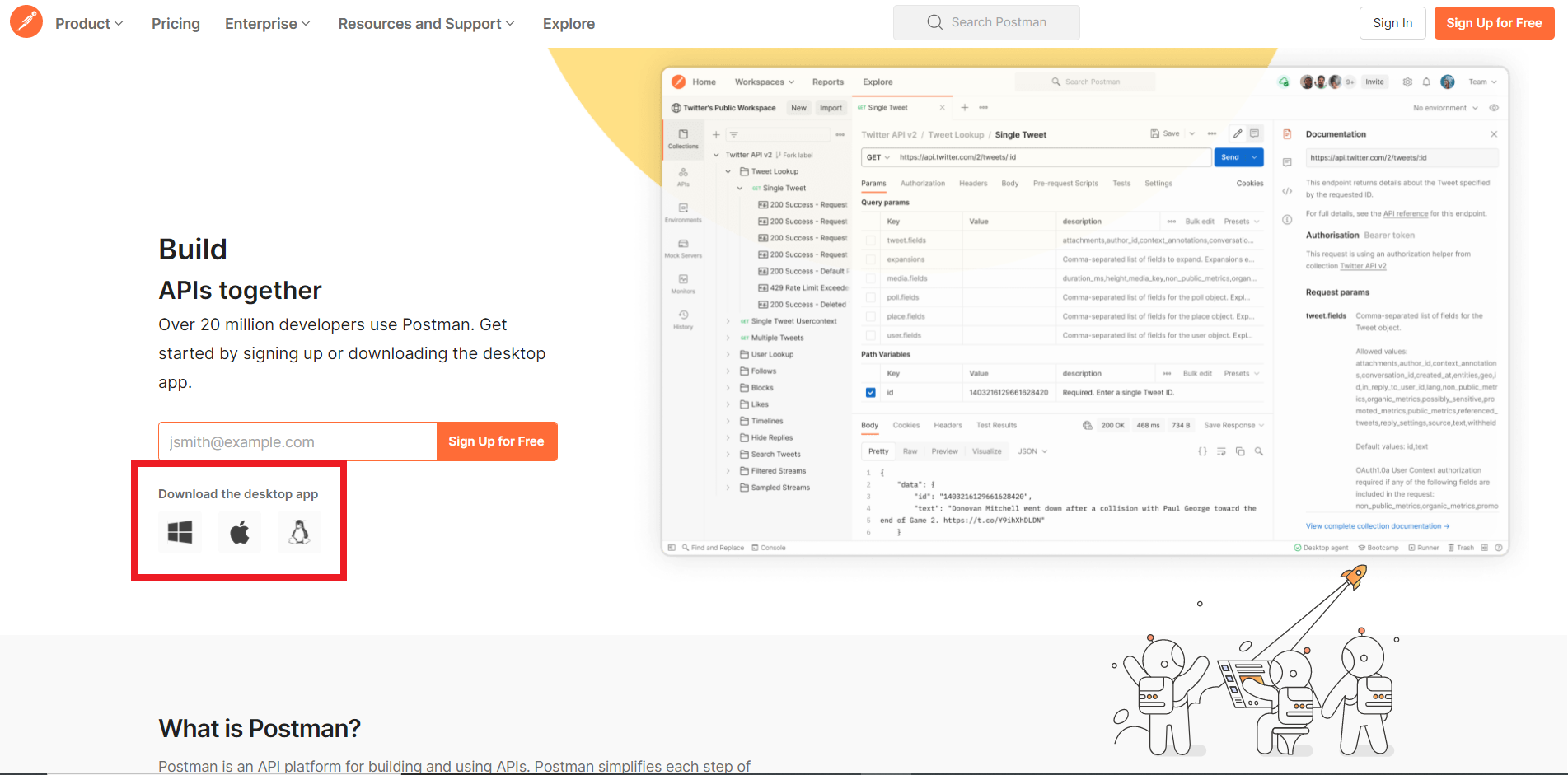
You will then be directed to the download page. Although there is a web version of Postman, downloading the desktop app is highly recommended as it allows you to access all features.
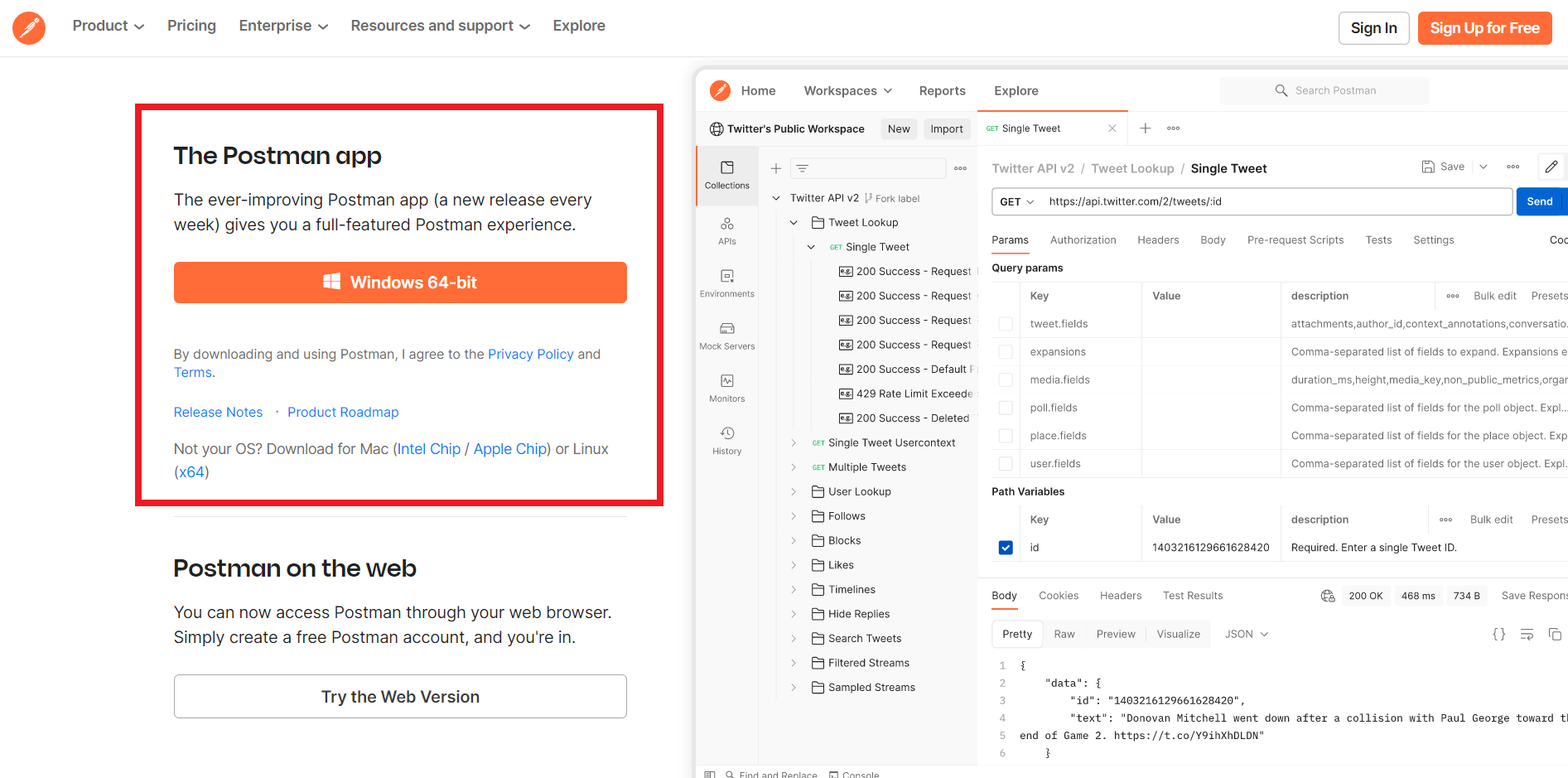
Application Overview
Once Postman is installed, you will see something similar to this page:
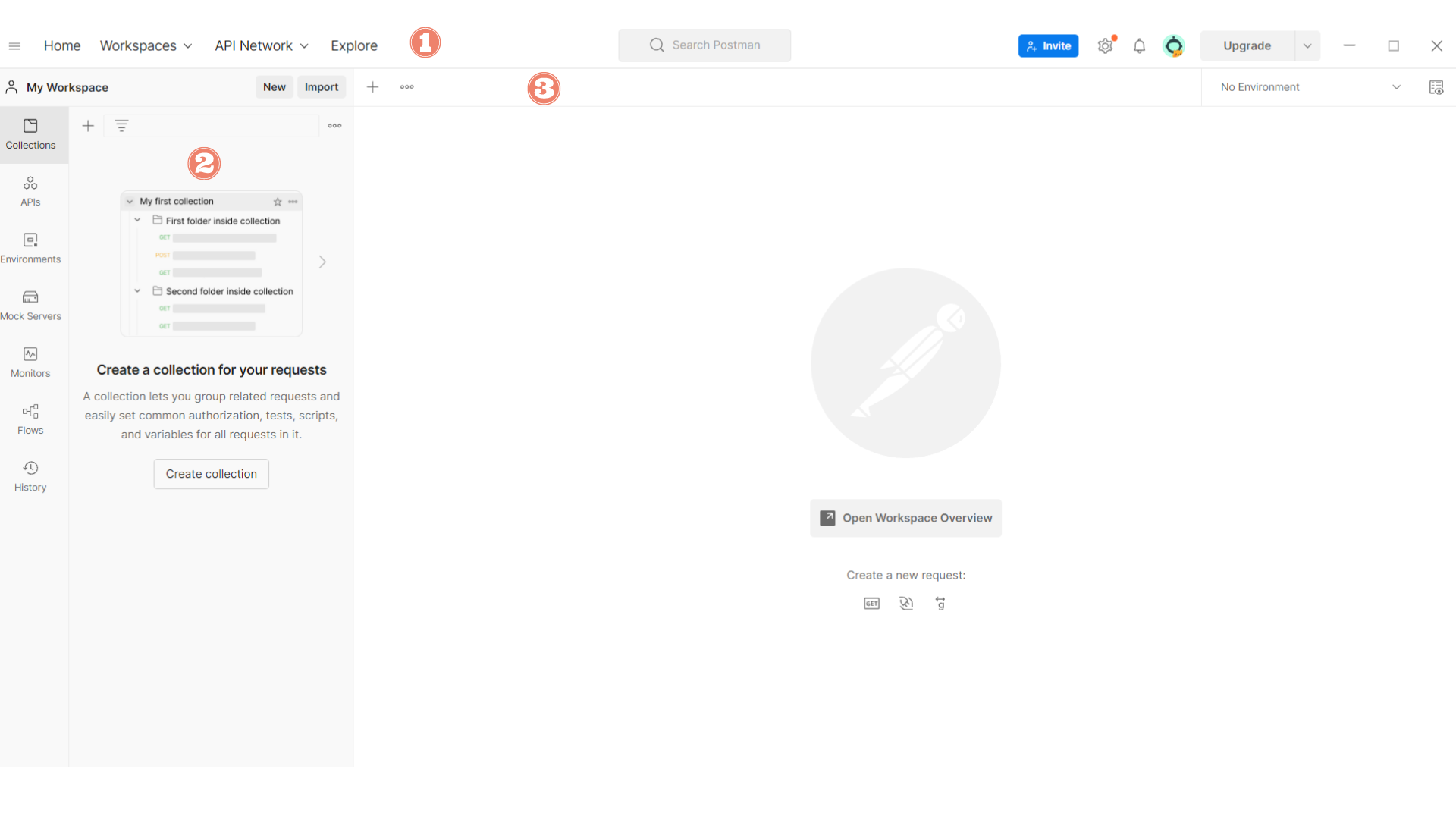
Take note of the following components labeled in the image above:
- The navigation bar at the top of Postman allows you to switch workspaces and includes the New button.
- The sidebar allows you to filter historical requests that you’ve made. It also lets you create new collections for your requests.
- The main section of the application will be where you see the requests that you make. The app typically starts up on the Launchpad screen. The New tab ➕ icon allows you to start a new request.
Customization
By selecting the various dividers and closing tabs, you can simplify your workflow. Click the New tab button in the main section of the page and then follow the instructions below to create a more streamlined view.
- Close the Launchpad tab.
- Open a new request tab by clicking the New tab button.
- Drag the sidebar divider to the left to collapse the sidebar.
- Drag the Response section of the new request tab up to hide the Params section.
Your page should look something like this when you’re done:
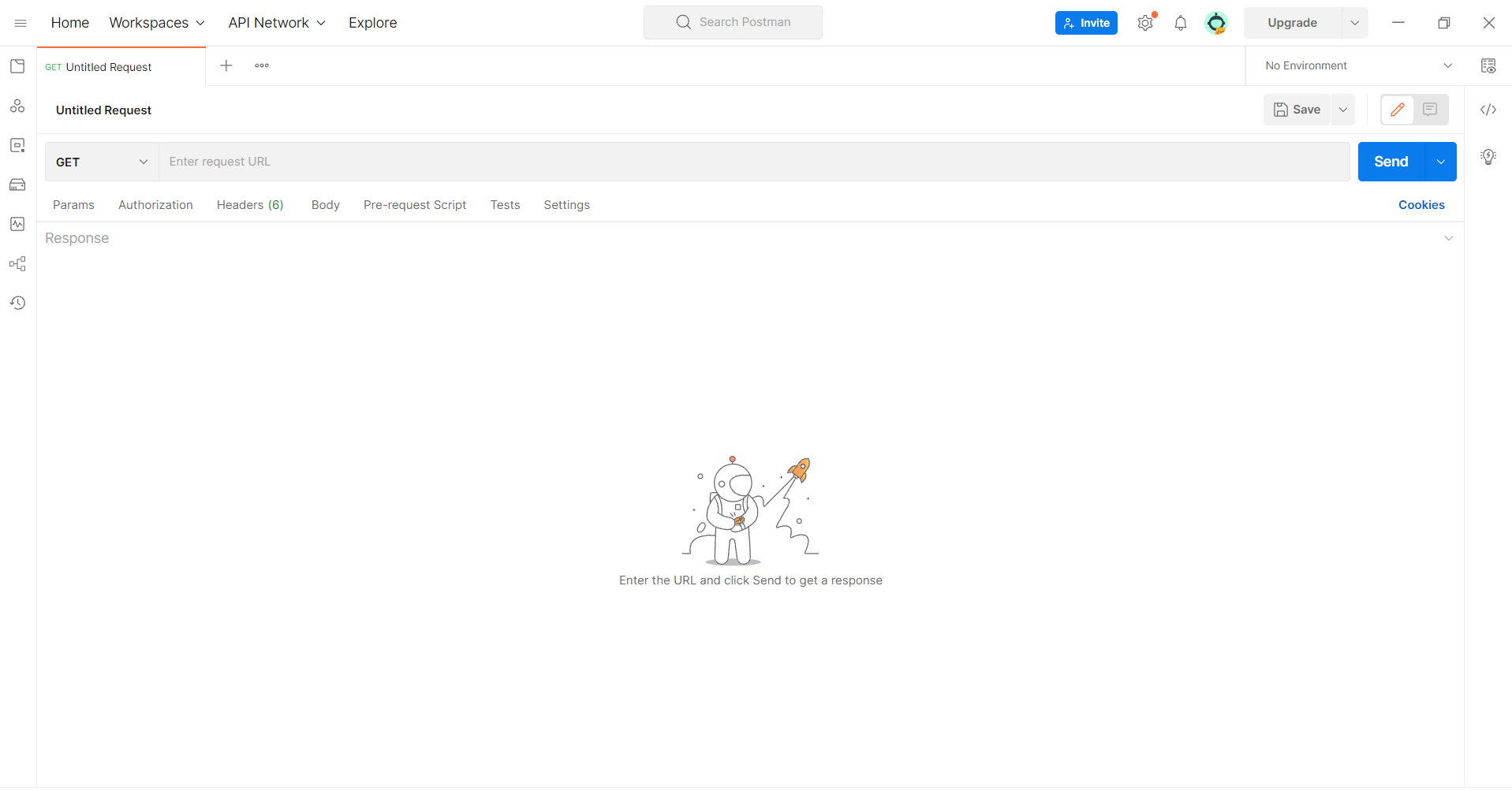
Making Your First Request
To make a request with Postman, type a URL like https://dev.to/. into the location bar that’s next to the drop-down menu with the word GET in it, as shown below. Then, click Send.
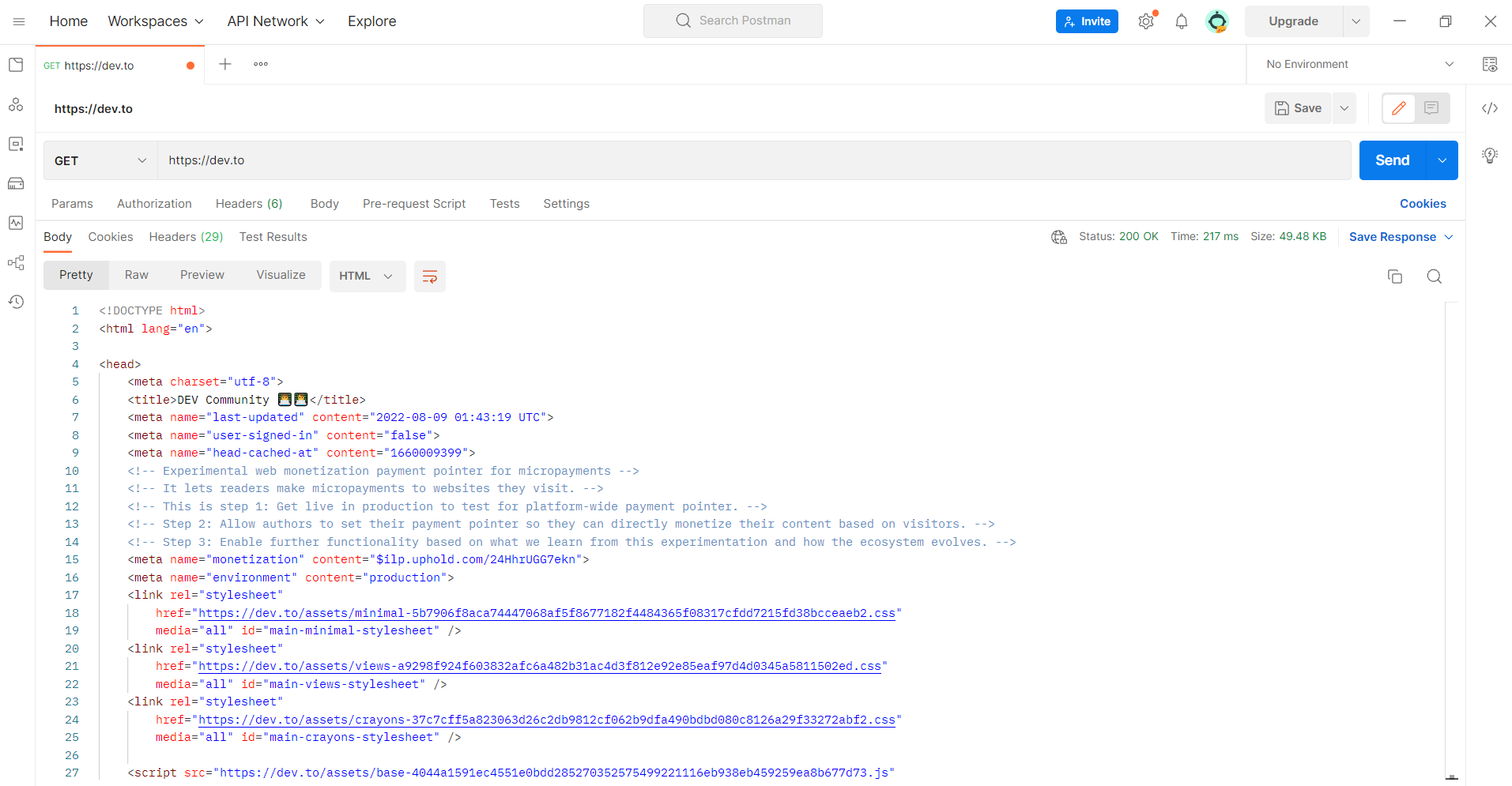
The response section will change to include a number of tabs, including the Body tab. In it, you’ll see both HTML and CSS!
By default, Postman will suggest that you save your requests in case you end up using them often. You don’t have to save your request in this instance.
You can click the Preview button that is within the Body section. Although it may not look exactly the same, you will probably recognize some elements from the Dev.to website.
Conclusion
At its most basic, Postman is a software application that allows you to make web requests without the use of a browser. However, after exploring more of its features, you will quickly notice that Postman can do much more than make requests and inspect results.